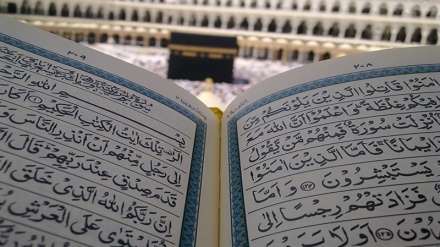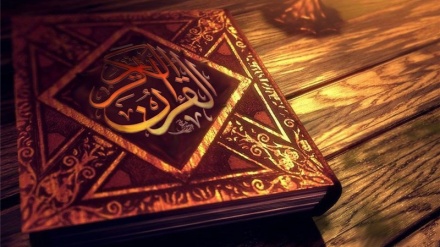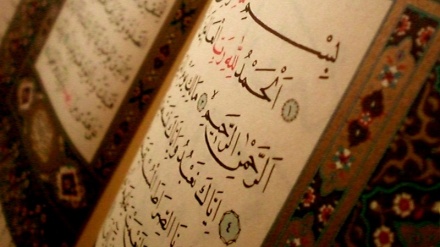Path towards Enlightenment (1047)
Welcome to another episode of the series in which we try to present you a fluent and easy-to-understand exegesis of God's final Scripture to mankind, the holy Qur'an. If you remember, we finished the exegesis of surah Al-Muzzammil and today we are going to start surah Al-Muddathir. Today we will explain 14 ayahs of this surah.
Surah Al-Muddathir has 56 ayahs and was revealed in Mecca. According to the exegetes of the holy Qur'an, this surah was revealed after Prophet Mohammad (SAWA) had been commanded to publicize his mission. Like other surahs which were revealed in Mecca, surah Al-Muddathir, too, contains issues such as reminding of the beginning of creation and the end (Day of Resurrection), struggle against polytheism and persistence in this way. It also points to the characteristics of inmates of hell who used to mock at the truth and fight the Qur'an. Let us enlighten our souls with listening to ayahs 1-7 of surah Al-Muddathir:
"In the name of Allah, the Compassionate, the Merciful. O you wrapped in your mantle! Rise up and warn! Magnify your Lord, and purify your cloak, and keep away from all impurity! And do not grant a favour seeking a greater gain, and be patient for the sake of your Lord."
These ayahs were revealed in direct address to the Prophet. They are related to the period when his secret invitation ended and he was missioned to invite people to God's way publicly. He is commanded to warn people against worshipping of idols and committing sins as they will lead to evil fate both in this world sand the Hereafter. The Prophet is ordered to magnify his Lord, to annul all false deities, to obliterate every trace of idolatry and not allow another name to be called besides God's name. Next he is commanded to purify both his body and heart from any impurity so that his word affects people. He is commanded to keep aloof from anything that may incur the divine wrath. Then the Prophet is prevented from granting favour on Allah for worshipping Him or doing righteous deeds, rather, you should be thankful to Allah as He has guided you and favoured you to worship Him and serve His servants. In the end of this part, Allah says that fulfilling the divine commands requires patience in the face of hardships. These ayahs teach us that:
- Human beings are subjected to a variety of dangers and, indeed, the prophets were missioned to awaken and warn people against those dangers in this world and the Hereafter.
- Greatness belongs only to Allah. Clearly, anyone who considers Allah great, will deem others little and humble and will not prefer others to Allah.
- Faith requires cleanness both internally and externally. Both body and heart must be purified form any impurity.
- We should take care not to grant favour on Allah for worshipping Him or on people for rendering services to them, as if Allah or people are indebted to us, while, it is Allah who has favoured us and helped us to worship Him and do righteous deeds.
Now let us listen to ayahs 8-14 of surah Al-Muddathir:
"When the Trumpet will be sounded, that day will be a day of hardship, not at all easy for the faithless. Leave Me with him whom I created alone, and then furnished him with extensive means, and [gave him] sons to be at his side, and facilitated [all matters] for him."
The second ayah of this surah was about warning. These ayahs give some examples of warnings. When the Day of Resurrection comes it will be a very hard day for the faithless and deniers of the Hereafter as they heard and understood the truth but rejected it. Then, the ayahs refer to a denier and enemy of the Prophet, called Walid ibn Mughayreh, who was one of the heads of Quraish tribe. The ayahs say that God granted him ample properties and sons and provided him with all means of welfare and facility. But, instead of thankfulness to God, he disbelieved Allah and denied the Hereafter through calling the Prophet as a magician and preventing people from hearing his words. These ayahs teach us the following points:
- We should never boast of our wealth and facilities. We should never forget the day that we were born and couldn't do anything. We also shouldn't forget that one day we will die and won’t be able to take any of these properties and facilities to the grave.
- The Day of Resurrection is very hard for the faithless and deniers of the truth.
- The Prophet has the mission of communication of Allah's revelation to people and he leaves the faithless who fight His religion alone with Him.
RM/AS/ME


